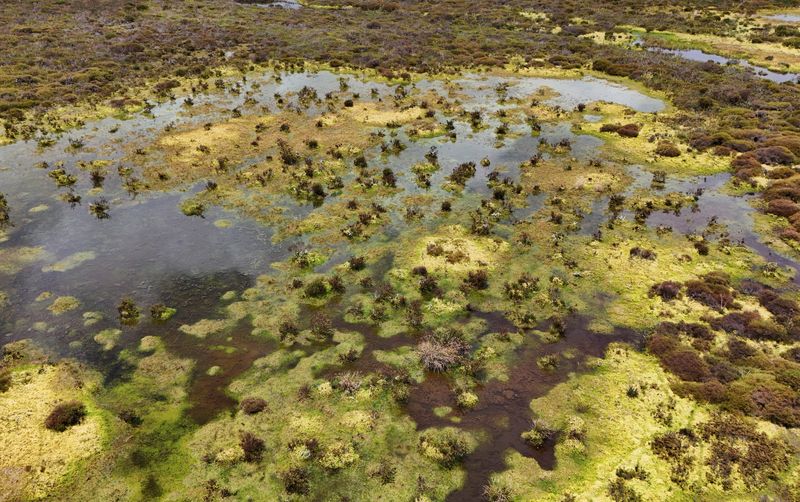By Oliver Griffin and Alexandra Valencia
GUATAVITA, Colombia/PALUGUILLO, Ecuador (Reuters) - Rural communities in the Andes of Colombia and Ecuador are fighting to protect fragile high-altitude wetlands that regulate the area's water cycles, as sharp water and energy rationing hit both nations.
Colombia and Ecuador -- both largely dependent on hydroelectric dams for energy -- have been battered by a strong El Nino weather pattern that has caused drought conditions, which scientists say were further exacerbated by climate change and damaging human activity.
Grassroots activists in the two countries, aided by international advocacy groups like Conservation International, have been working to protect the high-altitude wetlands, called paramos, and save water, especially through efforts to restore native plants.
Most of the world's paramos - which regulate the water cycle by absorbing and slowly releasing rain - are found in the Andes in Colombia, Ecuador and Peru.
"Deforestation in the Amazon (NASDAQ:AMZN), combined with variations that are being caused by climate change and the degradation of the soils is what has caused water dynamics to change," said Patricia Bejarano, director of the sustainable high mountain landscapes program run by Conservation International's Colombian chapter.
The crisis comes as Colombia prepares to host the United Nations' conference on biodiversity in the city of Cali at the end of October.
The paramos illustrate how protecting nature is vital to fighting climate change, as well as protecting water and ensuring the future of agriculture.
Drought has led to rotating water rationing in Bogota, Colombia's capital of almost 10 million people, while Ecuador's energy grid has been pushed to the brink, prompting power cuts to conserve water in dams.
Colombia suspended electricity exports to its neighbor to shore up its own power reserves.
Thirteen members of El Tablon, a rural community on the outskirts of Quito, work in a nursery in Paluguillo paramo to rear paper trees, a species of polylepis, which are then replanted.
"They're plants native to the paramo that help us conserve water," said Diana Sopalo, 29, who has been working for four years in the Fund for Protecting Water (FONAG) nursery, set up by international advocacy group The Nature Conservancy.
A WATER FACTORY
Paper trees, with their large surface area, are great for capturing and storing water, Sopalo said, adding that during dry season the species begins to slowly release water into the earth where it rejoins the water cycle.
The nursery, led by women, has planted 40,000 trees and is growing another 100,000.
"It's a water factory," Sopalo said.
Quito depends on water from the paramos, said FONAG's Paola Fuentes, a water analysis specialist.
"The water originates in this area and conserving these paramos, these wetlands, is essential for the low areas in the city," Fuentes said.
Some 26 rangers work to protect and monitor the region for FONAG.
"If the paramos weren't being managed, we would simply have much less water than we have now," said Galo Medina, Ecuador lead for The Nature Conservancy.
In Colombia's Guatavita, local activists and regional authorities are developing plans for Vista Hermosa de Monquentiva, a protected area within the Chingaza paramo, including expanding its borders.
Protecting the park and its species -- including plants like frailejones, or espeletia, famed for their ability to conserve water -- is vitally important for keeping drinking water and hydroelectric reservoirs full, said Doris Ramos, 52, who works on environmental issues for the Guatavita mayor's office.
The park, once used for cattle farming, has been a protected area since 2018 and precious frailejones and other species have slowly grown on the land.

"While we are restoring this ecosystem, it brings great potential for water, flora and fauna. It is also vulnerable to all the consequences of climate change," she said.
(This story has been refiled to fix capitalization on the name of advocacy group The Nature Conservancy in paragraph 11)
